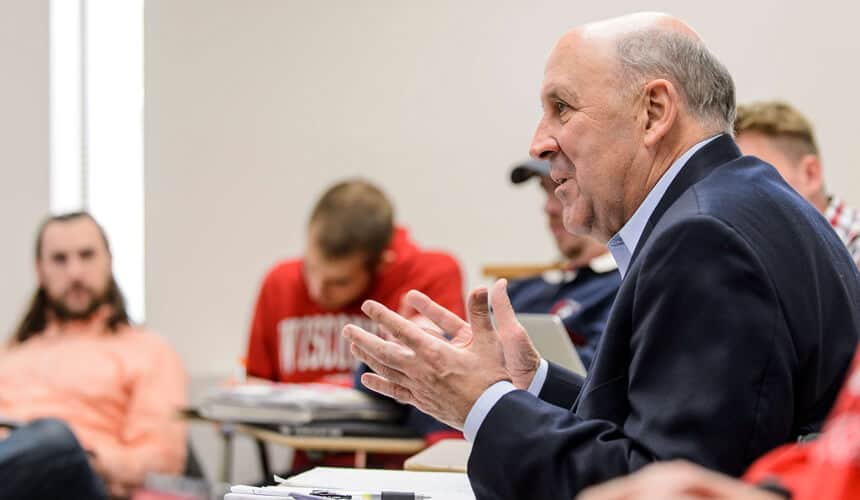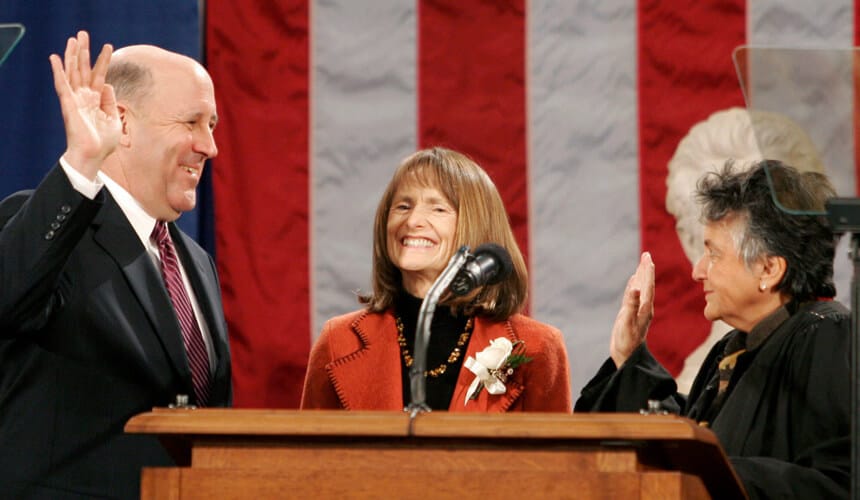Jim Doyle
JFK Visit a Game Changer
As 14-year-old Jim Doyle BA1967 listened to presidential candidate John F. Kennedy from the balcony of the Wisconsin Union Theater in 1960, a Secret Service agent asked him to step outside.
A nervous Doyle, scion of a Democratic family that backed Adlai Stephenson, was whisked to a room backstage.
“I’m sitting in this little room, and the door opens, and in walks John Kennedy,” Doyle recalled. “He asked me if I played shortstop, which I did.”
Kennedy, in a clear play for the elder Doyle’s support, called Doyle “Jimmy,” and made an instant impact that changed the boy’s life.
“The famous line about, ‘Ask not what your country can do for you; ask what you can do for your country,’ really was his call to service. I’ve tried to live a life that way,” Doyle said.
After three years at Stanford, Doyle finished his undergraduate degree at the University of Wisconsin, married Jessica Laird Doyle BS1967, MS1976, and followed JFK’s call to join the Peace Corps. The couple served in Tunisia from 1967 to 1969.
Doyle returned and earned a Harvard law degree before working in a legal services office on an Arizona tribal reservation. In 1975, he was elected to the first of three terms as Dane County district attorney.
The Democrat then served 12 years as state attorney general. In 2002, he defeated Governor Scott McCallum to earn his first term as Wisconsin’s chief executive, and in 2006 he won re-election, defeating U.S. Representative Mark Green.
During his tenure, Doyle fought for his priorities while battling budget deficits and a split legislature. As his approval ratings faltered during his second term, his relations with lawmakers frayed.
In 2009, Doyle announced he would not seek a third term. After serving as governor, he joined the law firm of Foley and Lardner and taught at UW–Madison.
“Politics is a very high calling, and I do believe that we need people who want to pursue it and pursue it for the right reasons,” Doyle said. “You can’t say you like democracy when it turns out your way, but you don’t like it when it turns out the other way. You can’t play it that way.”
 51° F
51° F
